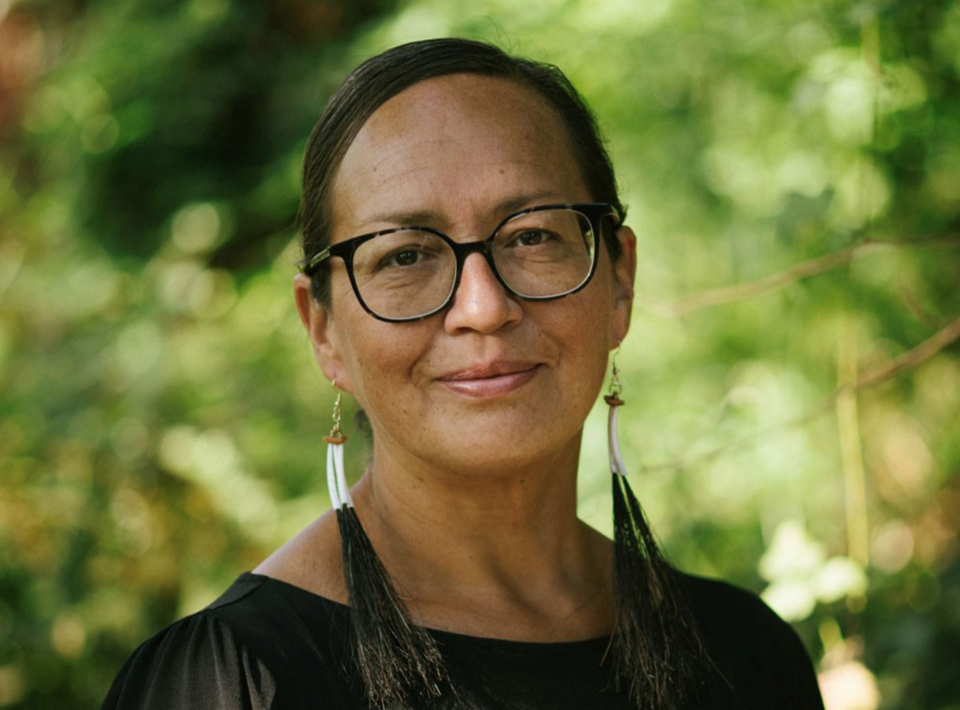The First Nations Health Authority is hailing a new cultural safety and humility standard as key to ending widespread racism against Indigenous people in British Columbia’s health-care system.
The new standard, which allows for the province to accredit health-care facilities and workers based on how safe they are for Indigenous people, is the first of its kind in Canada.
“It’s a commitment to ensuring that cultural safety is upheld, not just an important and lifesaving thing to do, but because it’s the right thing to do,” said FNHA deputy chief medical officer Dr. Nel Wieman, who co-chaired the committee that developed the standard.
“This standard offers an opportunity for us to work together to make the system better and safer.”
Its release coincided with the second anniversary of the In Plain Sight report last week, which found anti-Indigenous racism is present in every facet of health care in B.C.
The report found 84 per cent of Indigenous patients have experienced racism in health care in B.C., as have half of Indigenous health-care workers.
From being assumed intoxicated or drug-seeking to having symptoms dismissed or misdiagnosed, anti-Indigenous racism leads many to avoid seeking basic health care and worsens outcomes from chronic and acute conditions when they are able to access it.
A health standard was one of 24 recommendations made by In Plain Sight lead investigator Mary Ellen Turpel-Lafond in November 2020.
‘It needs to have teeth’: Wieman
Health standards are published documents that describe required resources and actions to create a desired outcome in a health system. They are used to ensure everything from proper infection control and prevention to food safety procedures to cancer care — and now, safe and competent care for Indigenous people.
In B.C., these standards are held by the Health Standards Organization, which published the new Cultural Safety and Humility Standard in June.
It will soon become an accreditation standard, Wieman explained, which will allow B.C. health-care facilities to self-assess their activities against the criteria and make changes to support quality care for Indigenous people.
“It provides a framework of cultural safety and humility,” said Wieman. “There is consistency, and everyone can be working on the same dimensions and criteria.”
The provincial government will need to determine how to apply the standard and enforce accreditation to it among provincial facilities and staff, she added.
“It needs to have teeth,” said Wieman. “In order to ensure high quality services, we need to ensure the standard has very real consequences.”
Wieman, who is Anishinaabe from Little Grand Rapids First Nation in Manitoba, co-chaired the standard’s development with St’at’imc Nation Elder Gerry Oleman, reviewing more than 1,100 submissions from individuals, employees and Indigenous organizations about their experiences.
The work to develop the standard began in 2018, two years before Health Minister Adrian Dix ordered the In Plain Sight investigation in June 2020.
That report, helmed by former judge and representative for children and youth Turpel-Lafond, made 24 recommendations to eliminate anti-Indigenous racism.
They ranged from better training to integrating Indigenous safety teams in health-care facilities to hiring more Indigenous people in leadership positions and strengthening complaints processes for people who allege mistreatment.
‘We cannot move fast enough’: Dix
Last week, the Ministry of Health reported that progress had been made on all recommendations, including hiring a number of Indigenous health workers in all health authorities and improving options for Indigenous people making formal complaints about experiences with health-care workers.
“I acknowledge that we cannot move fast enough to respond to historic and ongoing Indigenous-specific racism,” wrote Dix in the progress report.
“Profound systems transformation takes time, dedication and persistent work to ensure cultural humility is embedded and Indigenous-specific racism is eradicated across the health-care system.”
In the last two years, a number of Indigenous health workers have said they faced backlash for the report’s findings, with several saying it was used to justify team restructurings that left them without jobs.
The province has stood behind the actions health authorities took to implement the recommendations and the report itself.
Wieman said across the span of her decades-long career, she has seen few issues receive the kind of sustained attention and action as In Plain Sight.
“Racism is insidious, it’s powerful, and it has always been part of the Canadian cultural fabric. Changing that is going to take longer than two years,” she said. “But this is a life-saving thing we’re engaged in.”



